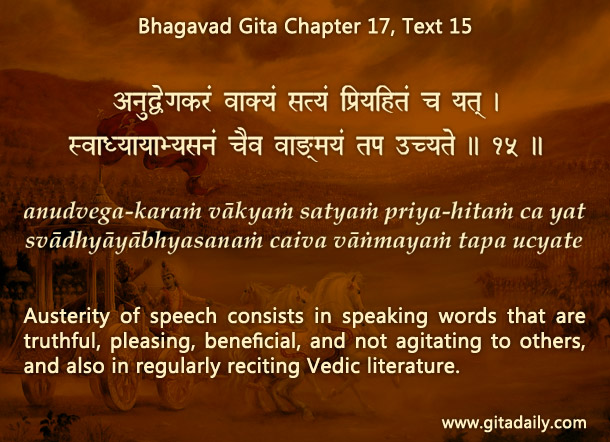To speak effectively speak not just correctly but also appropriately
When a doctor prescribes a medicine to a patient, they consider not just the patient’s malady, but also the patient’s case history. Sometimes, if a patient has some allergy or some other complication from the past, then a medicine that is normally curative can be counterproductive for that patient.
Spiritual wisdom is often compared to medicine for us, souls who are currently deluded by various kinds of worldly illusions. When we start sharing wisdom with others, we take on the role of spiritual doctors; we are meant to provide the wisdom-nuggets that can help our audience heal.
While prescribing thus, we need to take the responsibility to know the particular sensitivities of our audience so that they don’t get unnecessarily alienated by peripheral points that make them unreceptive to core wisdom. Pertinently, the Bhagavad-gita (17.15) recommends that we practice austerity of speech which begins with speaking in a way that doesn’t agitate people’s minds.
Does this mean we should never speak the truth if it is unpalatable? Not at all. Sometimes unpalatable truths need to be spoken, just as sometimes bitter medicines need to be administered. But just as everything bitter is not medicine, so too every unpalatable word is not the truth; we needn’t presume that speaking in a way that agitates is evidence that we are good spiritual teachers.
Before administering bitter medicines, doctors need to gently explain to patients the necessity of that medicine. Similarly, before speaking unpalatable words, we need to speak appropriately to create in our audience the necessary foundation of trust and intellectual conviction.
When communicating with others, we need to consider not just the correctness of our speech, but also its appropriateness: is what we are about to speak the appropriate thing to inspire them spiritually. By such sensitivity, our words will become much more effective in bringing about the desired transformation.
Think it over:
- When we share spiritual wisdom, what responsibility do we need to accept?
- Before speaking unpalatable words, what do we need to do first?
- How can we make our speech more effective?
***
17.15 Austerity of speech consists in speaking words that are truthful, pleasing, beneficial, and not agitating to others, and also in regularly reciting Vedic literature.
To know more about this verse, please click on the image
Explanation of article:
https://www.youtube.com/watch?v=_M70Q8FpMsg&feature=youtu.be
Podcast:




MOUTH is the source of all problems